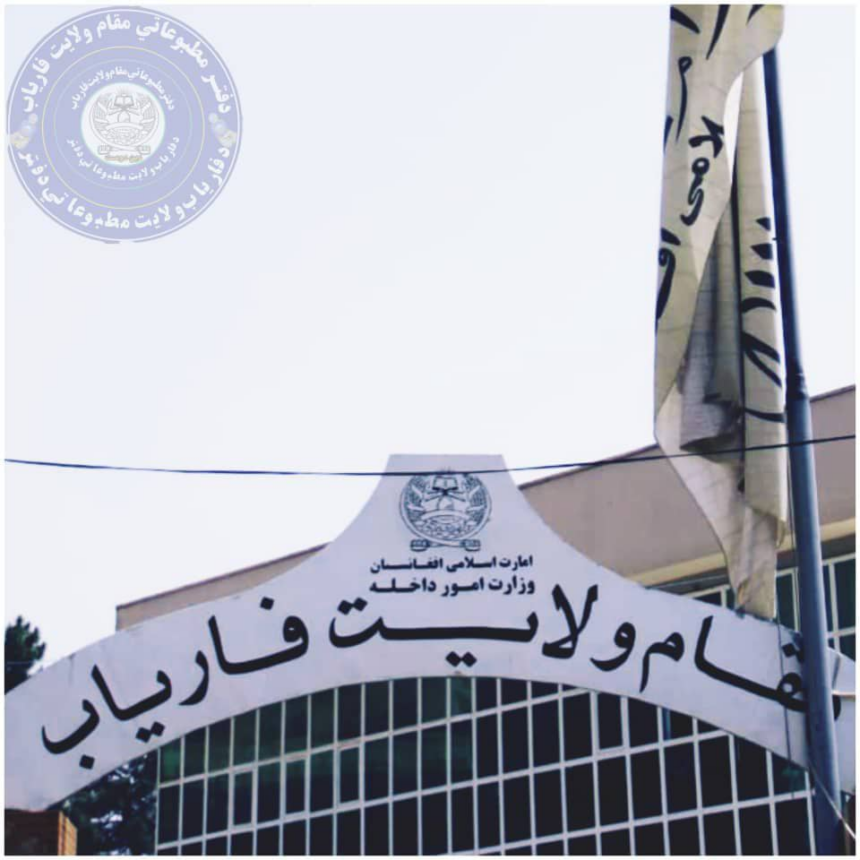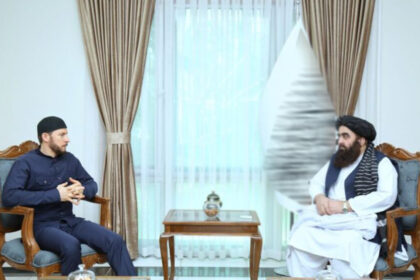RASC News Agency: Local sources in northern Faryab Province report a wave of coercion and land seizures orchestrated by Taliban authorities, resulting in the detention of at least twenty-five residents who resisted the appropriation of their property. The operation, allegedly conducted under the guise of a so-called “water dam project,” has intensified fears among local communities about the Taliban’s unchecked abuse of power and systematic exploitation of rural populations.
According to credible local accounts, Mawlawi Abdul Ahmad Fazli, the Taliban-appointed governor of Faryab, has forcibly confiscated farmland belonging to Tajik residents of Khwaja Ghar village in Ghowrmach district. The lands were reportedly seized under the pretext of constructing a state-run irrigation dam, though no concrete project plans, budgets, or public notifications have been provided. Villagers report that Taliban forces have actively blocked farming activities, threatening severe punitive measures for anyone attempting to cultivate their own land.
At least twenty-five villagers who protested the seizure were reportedly detained. While twenty-three were released after several days, two prominent community figures Ghulam Sakhi Navid, a former provincial council member, and Mohammad Sharif, a former local militia commander remain in Taliban custody at undisclosed locations, with families receiving no information regarding their conditions.
The Taliban’s Department of Information and Culture in Faryab confirmed Navid’s detention, framing it as a “preventive measure” to facilitate the dam project and maintain “public order.” Civil society activists, however, view this justification as a thin veneer for what is in reality systematic land appropriation by Taliban officials and their networks.
Since the Taliban’s return to power in 2021, human rights defenders have documented a sharp rise in land confiscations, forced displacements, and restrictions on farming across northern provinces, including Faryab, Takhar, and Balkh. Analysts assert that these measures serve as a broader strategy to consolidate Taliban control over ethnically diverse regions and punish communities perceived as politically or socially independent.
“Land grabbing has become one of the Taliban’s most effective tools of repression,” said a human rights expert based in Mazar-e-Sharif. “They use the language of development to legitimize what is, in effect, theft from Tajik, Uzbek, and Hazara farmers. This is not governance it is coercion disguised as progress.”
Local residents describe the seizures as devastating both economically and socially. Fields lie fallow, families face financial ruin, and young men are forced into precarious labor or migration to survive. “They claim it is for a dam, but everyone knows it is for their benefit,” said one farmer, speaking on condition of anonymity. “Those who resist vanish, and the rest must comply or starve.”
Civil society organizations warn that such actions constitute collective punishment and are likely to exacerbate local tensions. The arbitrary detention of community leaders, they note, undermines traditional dispute-resolution mechanisms and weakens social cohesion, creating fertile ground for resistance or conflict.
Analysts further caution that the Taliban’s exploitation of land and natural resources is increasingly tied to economic survival. With international aid curtailed and the formal economy in collapse, Taliban officials reportedly divert seized land and water systems to favor loyalists or for personal gain, deepening inequality and fostering resentment among ordinary citizens.
The human cost is profound. Farmers who once relied on their land for subsistence now face mounting debt, food insecurity, and the psychological burden of living under constant threat. Activists warn that these conditions could ignite localized uprisings similar to those that emerged in northern Afghanistan in 2022–2023, when small armed resistance groups briefly challenged Taliban authority.
“The Taliban claim to enforce Islamic justice, yet their actions are the opposite,” said an Afghan political analyst. “They preach morality while confiscating property, imprisoning dissenters, and silencing communities. What we are witnessing in Faryab is not governance; it is systematic oppression.”
Observers emphasize that the unfolding situation has broader implications for northern Afghanistan. Widespread land confiscations threaten social stability, exacerbate ethnic tensions, and undermine public trust in any formal structures the Taliban claim to administer. In the absence of accountability or oversight, analysts warn, these policies could entrench cycles of poverty, displacement, and unrest, further isolating Afghanistan from the international community.
For now, Faryab’s residents remain trapped in fear and uncertainty. Fields remain untended, livelihoods are disrupted, and the fabric of local society is under sustained pressure. In a country where land is life, the Taliban’s relentless pursuit of control has turned both property and governance into instruments of coercion.






